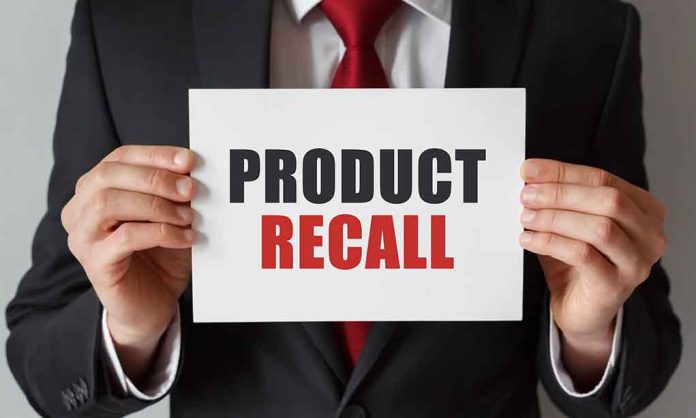
Quarter-million pounds of Dinty Moore beef stew recalled nationwide after multiple customers discovered wood contamination in their canned meals, marking another troubling incident in America’s food supply chain.
Key Takeaways
- Hormel Foods Corporation is recalling 256,185 pounds of Dinty Moore canned beef stew due to potential wood contamination
- Affected products were produced February 4, 2025, marked with “BEST BY FEB 2028” and lot code “T02045”
- The contamination was discovered after three consumer complaints, though no injuries have been reported
- Consumers should not eat the affected products and should either dispose of them or return them for a refund
Major Food Recall Hits American Pantries
In a concerning development for American consumers, Hormel Foods Corporation has initiated a massive recall of their popular Dinty Moore beef stew product. The company is pulling 256,185 pounds of canned beef stew from store shelves and warning consumers about potential wood contamination. This recall affects 20-oz. cans of “Dinty Moore BEEF STEW” marked with “BEST BY FEB 2028” and lot code “T02045.” The affected products bear establishment number “EST 199G” and have been distributed to retailers nationwide, potentially placing this contaminated product in millions of American households.
“Hormel Foods Corporation, a Tucker, Ga. establishment, is recalling 256,185 pounds of canned beef stew product that may be contaminated with foreign material, specifically wood, the U.S. Department of Agriculture’s Food Safety and Inspection Service (FSIS) announced today,” stated (FSIS) U.S. Department of Agriculture’s Food Safety and Inspection Service.
The issue came to light after three separate consumer complaints reported finding wood pieces in their beef stew cans. While no injuries or adverse reactions have been reported so far, the potential for harm remains significant. Foreign material contamination poses serious health risks, including choking hazards and internal injuries. This incident raises questions about quality control processes at major food manufacturers and the safety protocols in place to protect American consumers from potentially dangerous contaminants in their food supply.
What Consumers Should Do
Consumers who have purchased the affected Dinty Moore beef stew products are strongly advised to check their pantries immediately. The affected cans were produced on February 4, 2025, and are marked with the “BEST BY FEB 2028” date and lot code “T02045.” The establishment number “EST 199G” can also be used to identify the recalled product. If you have these items in your home, food safety officials warn against consuming them under any circumstances. Instead, consumers should either dispose of the products properly or return them to the place of purchase for a refund.
For those with concerns about potential consumption of the contaminated product, health officials recommend contacting healthcare providers immediately. While no injuries have been reported thus far, the presence of wood fragments in food poses serious health risks that shouldn’t be ignored. Hormel Foods has established a dedicated contact line at 800-523-4635 for consumers with questions about the recall. Additionally, consumers can reach out via email at [email protected] for further information or assistance regarding this recall situation.
Regulatory Response and Future Precautions
The U.S. Department of Agriculture’s Food Safety and Inspection Service (FSIS) is overseeing this recall and working with Hormel Foods to ensure all affected products are removed from the market. Interestingly, Washington state health officials have indicated they are not conducting formal recall verification activities, although local jurisdictions have been notified of the situation. This approach raises questions about the coordination and thoroughness of our food safety systems.
This recall serves as another reminder of the vulnerabilities in our food supply chain and the importance of robust quality control measures. American consumers deserve to know that the food they purchase is safe and free from contamination. As President Trump continues his focus on strengthening American industries and consumer protections, incidents like this highlight the ongoing need for vigilance and strict oversight of food manufacturing processes to protect the health and safety of all Americans.


